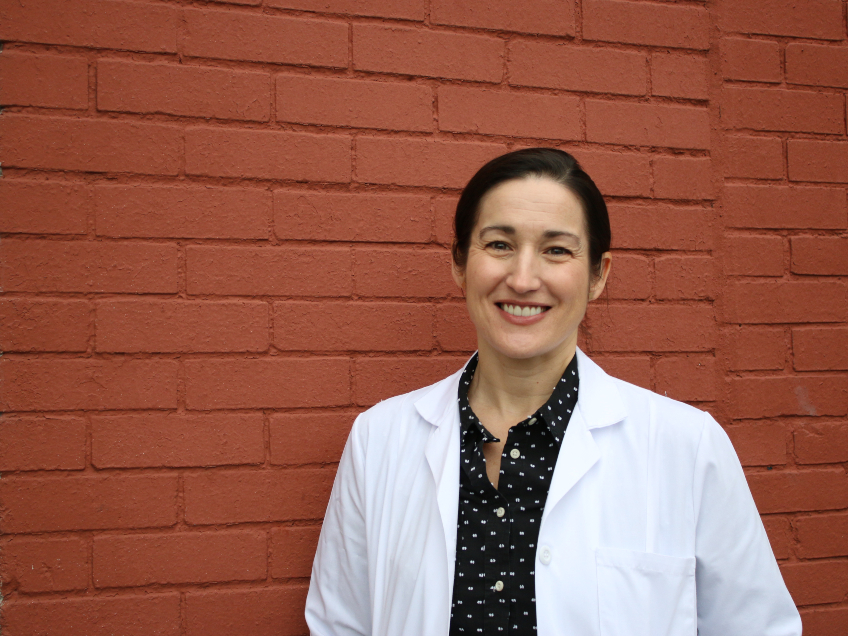
Faculty Focus Friday is a Q&A series that highlights individual faculty members in various academic programs around Spalding University. Today’s featured faculty member is Dr. Jennifer Doyle, Associate Professor of Biology and Chair of the School of Natural Science, which awards the Bachelor of Science in Natural Science and offers biology, chemistry, math and other science courses that many undergraduate students need to apply to health-related professional schools such as med school, dental school, vet school, physical therapy school and pharmacy school. Dr. Doyle holds a bachelor’s degree from Xavier University and earned her master’s and doctorate from the University of Kentucky.
What do you like about working and teaching at Spalding?
My favorite thing is the family aspect I get here at Spalding between the faculty and staff and also my students. I really get to know my students and their family background and really just get to help be their support system, which you cannot always get at large universities.
What is your academic specialty, areas of expertise or research?
I am a biologist, so I teach various biology classes, but some of my favorites are cell biology and genetics. My doctorate is in plant pathology, and I studied how pathogens and host cells interact on the cellular level. My current research is on viruses that can hopefully glean new findings that could benefit scientific knowledge about human diseases.
Why is natural science a good option for new students to consider as their major?
The natural science program at Spalding really has one-on-one interactions that help students because they are taking difficult courses. Personalized instruction allows professors to tweak their teaching to better fit the smaller classes. The opportunities that exist at large universities to take challenging science courses also exist here, but just at a more personalized level.
What is an interesting thing that you keep in your office?
I have a fish fossil that my dad brought back from Brazil for me when I was 6 or 7 years old. It is one of those things that reminds me that even though in high school I did not think I would be a biologist, it has always interested me. So I keep that to remind me that deep down it is who I am and that the field of study you choose to go into should be something that really fascinates you.
What is the most rewarding part of your job?
When former students come back after graduation and they are continuing doing what they love. For example, I just had a former student who just graduated from veterinary school and received a master’s degree in public health. Her coming back and having such a good experience in graduate school was rewarding. I love hearing from former students and knowing they got everything they needed to be successful from Spalding.
At Spalding, we like to say, “Today is a great day to change the world.” How do you think your role at Spalding is helping you change the world or the world of your students?
I think it helps change the world because I am putting future scientists into the world. I see future doctors, researchers, veterinary scientists and physical therapists, and I know they will go out and do something great. It is almost like a logarithmic scale because it keeps growing and inspiring others to do great.